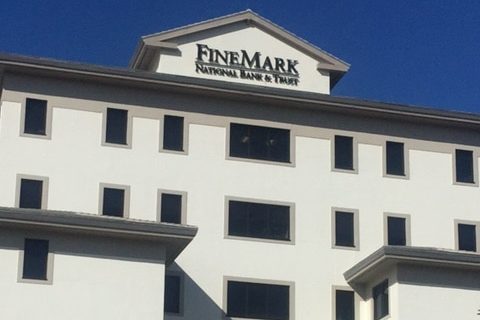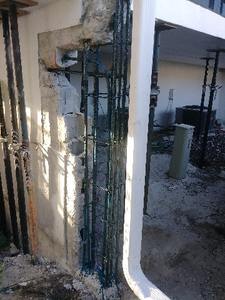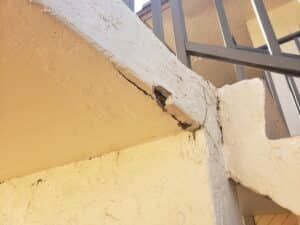McLeod’s Contracting Solutions, certified and insured Florida General Contractors, are dedicated to empowering Condo-HOA and commercial property owners and managers with the knowledge and resources needed to make well-informed decisions on property maintenance and improvement projects.
With a diverse range of services tailored to the unique needs of these types of properties, we aim to provide educational, informative, and helpful content for our clients.
Focusing on waterproofing and sealant systems, this blog seeks to explore the essential role these solutions play in maintaining the integrity and longevity of Condo-HOA and commercial properties.
The Importance of Waterproofing and Sealant Systems
Ignorance of proper waterproofing and sealant solutions can lead to water damage, deterioration, and possible structural issues in any Condo-HOA or commercial property. Securing a reliable system is integral to maintaining the value and well-being of such properties. Here, we delve into why these systems are vital:
1. Prevent Water Damage: Waterproofing and sealants offer protection against water intrusion, safeguarding your property from the damaging effects of leaks, moisture, and mold growth.
2. Preserve Structural Integrity: A well-executed waterproofing system prevents water from seeping into materials like concrete and steel, preserving your building’s structural integrity.
3. Improve Indoor Environment: Waterproofing and sealant systems contribute to a healthy indoor environment by minimizing mold and dampness, thereby enhancing the comfort and well-being of occupants.
4. Increase Property Value: Implementing effective waterproofing and sealants can boost your property’s value by maintaining its condition and ensuring longevity.
Waterproofing and Sealant Options
A variety of waterproofing and sealant systems are available, each with unique features, materials, and applications. The following list will help you make the best choice for your property:
1. Liquid Waterproofing Membranes: Applied in a liquid form, these elastomeric membranes create a seamless, durable, and flexible waterproof barrier. They are ideal for flat or irregular surfaces and are easy to apply.
2. Sheet Membranes: Comprising rubber or plastic sheeting affixed to the building’s surface, sheet membranes provide long-lasting waterproofing protection. They are suitable for foundation walls, vertical surfaces, and roofs when properly installed.
3. Bentonite Clay Waterproofing: Using natural sodium bentonite, this system forms a self-healing and self-sealing waterproof barrier between soil and the building’s surface. It’s especially effective for below-grade applications and environmentally-friendly projects.
4. Silicone Sealants: Offering excellent adhesion and flexibility, silicone sealants are essential for sealing expansion joints, windows, doors, and other building penetrations. They are water-resistant, durable, and accommodate movement without compromising performance.
Best Practices for Waterproofing and Sealant Application
Following industry-standard steps and techniques is crucial for a successful waterproofing and sealant installation. The following best practices ensure optimal outcomes:
1. Proper Surface Preparation: Ensure surfaces are clean, dry, and free from debris, dust, or any other contaminants before application. Repair any pre-existing cracks or irregularities.
2. Correct Material Selection: Choose the appropriate waterproofing and sealant systems and materials by considering factors such as the building’s location, exposure, surface type, and climate conditions.
3. Adequate Coverage and Thickness: Always apply waterproofing materials and sealants according to manufacturer specifications. Achieving the recommended coverage and thickness is critical for long-lasting performance.
4. Quality Control and Assurance: Implement periodic inspections throughout the waterproofing and sealant application process to ensure quality, address any issues promptly, and achieve the desired results.
Hiring Professional Waterproofing and Sealant Contractors
Selecting a trustworthy waterproofing company is essential for a smooth, efficient project execution. Keep these factors in mind:
1. Experience: Look for contractors with a proven track record of successfully completing similar projects in Condo-HOA and commercial settings.
2. Certifications and Insurance: Verify that the company holds the necessary certifications and adequate insurance coverage to safeguard your interests and ensure professional, reliable services.
3. Client Feedback: Always check references and previous customer reviews to assess the contractor’s relative expertise and level of client satisfaction.
4. Clear Communication: Prioritize contractors who communicate clearly regarding project timelines, methodologies, and materials used, maintaining transparency, and trust.
Final Thoughts
Waterproofing and sealant systems play a critical role in preserving the longevity and well-being of Condo-HOA and commercial properties. Understanding their importance, exploring various material options, implementing best practices, and engaging professional contractors ensures a successful waterproofing and sealant project that safeguards your property for years to come.
Entrust your waterproofing and sealant needs to McLeod’s Contracting Solutions, certified and insured Florida General Contractors specializing in Condo-HOA and commercial properties. Our team offers the requisite experience, knowledge, and dedication to providing top-quality services tailored to your property’s specific needs.
Contact our waterproofing contractor today for a free consultation to discuss your property’s waterproofing requirements, and let us help you maintain and enhance your property investment with our expert solutions.







